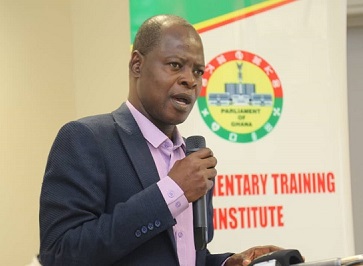Dr. Steve Manteaw, Co-chair of the Ghana Extractive Industry Transparency Initiative (GHEITI), has hailed the Lithium Mining Agreement between the Government and Atlantic Lithium as one of the best in the nation’s resource extraction history, re-echoing an assertion earlier made by the Lands and Natural Resources Minister, Samuel Jinapor.
Dr Manteaw commended the lithium mining agreement for its unprecedented terms specifically pointing to increases in royalty payments (10%) and the country’s equity stake (13%) asserting the agreement makes it different from all other mining contracts in the country.
He argued that the agreement establishes a new baseline for negotiating future contracts with the improved royalty payments and equitable terms suggesting a departure from earlier, less favorable agreements and a commitment to securing better terms for Ghana.
Reacting to assertions by some civil society groups that Ghana is being short-changed in the deal, Dr. Manteaw expressed confidence that this will help subsequent agreements to be improved.
“My preliminary assessment tells me that this is the best natural resource contract we have signed so far in the history of resource extraction in Ghana. So it sets a certain baseline for negotiating future contracts”.
“Let me say that it happened the same manner as Jubilee [oil field]. If you compare the contract signed with the jubilee partners and other subsequent ones, it tells you that over time we have improved in the various negotiations,” he remarked.
He further stated that the lithium contract suggests the country will not go back to the days when it was signing contracts with little or no benefit.
“It also indicates that this country will not go back to the days we were signing 3.0% and 5.0% royalty payments and 10% carried interest,” he added.
Meanwhile, on the same subject matter of the lithium mining agreement between Ghana and Barari DV of Atlantic Lithium being the best so far, Honorary Vice President of IMANI Ghana, Bright Simons, has stated otherwise, arguing that there have been instances in the past, particularly in the General Acheampong regime where the country had a 55% equity stake in mining companies coupled with a variable royalty structure.
“The Minister has been misadvised because if you look at the claims he is making that the deal is the best for the country based on the 10% royalty rate and 13% carried interest for the state.
“In the 1970s, Ghana had a 55% interest participation rate in mining companies, there were times too when we had a variable royalty structure that was higher than the current fixed 10% we have now,” he quipped.
The Lithium Mining Agreement has been criticized by some civil society organisations like IMANI Ghana and the Institute of Economic Affairs (IEA), saying it is not in the best interest of the country.
Source:norvanreports

